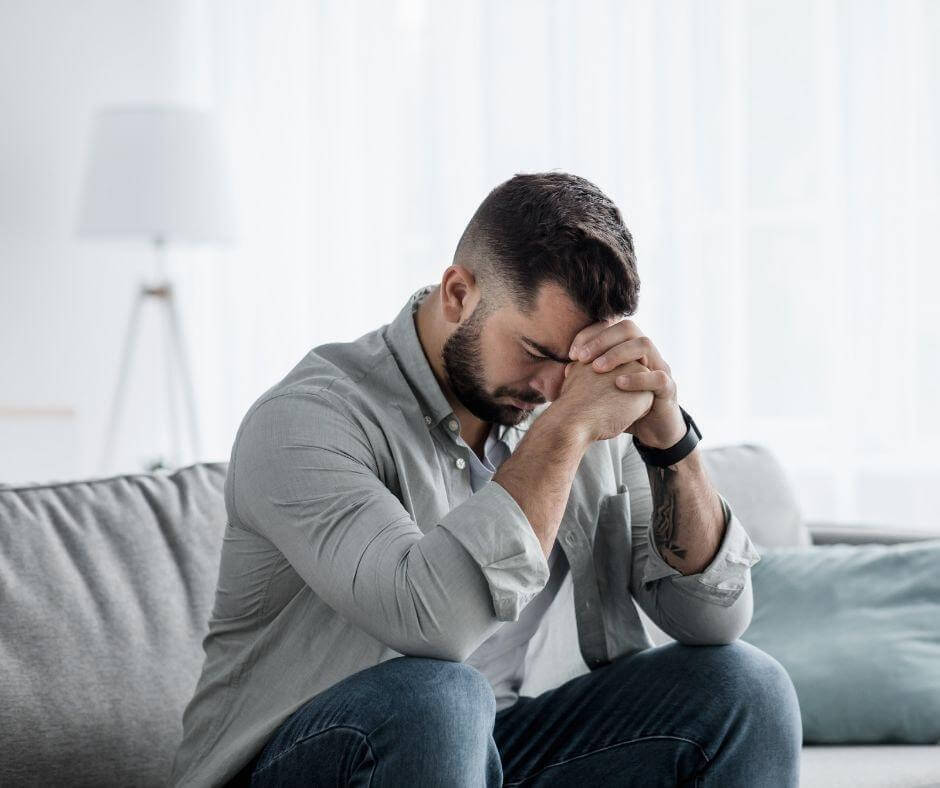Social anxiety, also known as social phobia, is a common and often debilitating condition that can make everyday interactions, particularly in social situations, feel overwhelming. For many, alcohol has historically been a coping mechanism to reduce anxiety levels, allowing them to manage their social fears temporarily. However, relying on alcohol as a solution can lead to alcohol abuse and, in some cases, alcohol use disorder. Fortunately, there are alternatives to alcohol for anxiety, which can help individuals manage social anxiety without relying on substances.

Understanding Social Anxiety Disorder and Its Effects
Social anxiety disorder involves an intense fear of being judged or negatively evaluated in social situations. People with social anxiety often experience extreme anxiety before and during social interactions, fearing they will say or do something embarrassing. This anxiety can manifest physically with symptoms such as sweating, trembling, or difficulty breathing, and it can significantly impair daily functioning.
In many cases, individuals with social anxiety may turn to alcohol to self-medicate. Alcohol’s ability to temporarily relieve stress and reduce inhibitions makes it a popular choice for people trying to overcome social anxiety. However, over time, this unhealthy cycle can lead to alcohol dependence or alcohol abuse. As alcohol is consumed to relieve anxiety, it may inhibit impulse control, making individuals more prone to unhealthy behaviors and increased anxiety levels in the long run.
Why Alcohol Use Can Be Harmful for Social Anxiety
While drinking alcohol may relieve social anxiety symptoms in the short term, the effects are temporary and often lead to an unhealthy dependence on alcohol. Social drinking can quickly escalate to alcohol misuse or even alcohol dependence. This creates a negative reinforcement loop where alcohol use becomes the go-to coping mechanism for anxiety, only to leave the person with worse anxiety and stress when the effects wear off.

Additionally, alcohol consumption can worsen social anxiety symptoms in the long term. Heavy drinking impairs cognitive functioning, making it harder for individuals to process negative thoughts and manage anxiety in social situations. In some cases, the use of alcohol may worsen social phobia, leading individuals to avoid social interactions altogether.
Mental health treatment, including therapy and counseling, is essential in breaking this harmful cycle. It addresses the root causes of both anxiety and alcohol use, helping individuals develop healthier coping mechanisms and gain control over both issues.
Alternatives to Alcohol for Social Anxiety: Healthy Coping Strategies
Managing social anxiety without alcohol intake is not only possible but also essential for long-term mental health. Here are several effective alternatives to alcohol for anxiety that can help individuals overcome social anxiety and excessive fear around social interactions:
1.) Mindfulness and Deep Breathing Techniques
Mindfulness techniques can be extremely effective in managing anxiety symptoms. By focusing on the present moment and cultivating self-awareness, individuals can reduce the intensity of their anxiety. Deep breathing exercises are particularly helpful in calming the nervous system and promoting stress relief. In moments of anxiety, taking slow, deep breaths can help ground you in the present moment, reduce stress, and lower the physical symptoms of anxiety.
2.) Cognitive Behavioral Therapy (CBT)
CBT is one of the most effective forms of therapy for treating social anxiety disorder. This therapeutic approach helps individuals identify and challenge negative thoughts that contribute to anxiety. Through CBT, individuals can learn to reframe their thoughts, replacing them with more realistic and positive beliefs. This can lead to improved confidence in social situations, making it easier to engage in social interactions without feeling overwhelmed by anxiety.
3.) Gradual Exposure to Social Situations
A key component of overcoming social anxiety is gradual exposure to feared situations. Starting with less challenging social events, such as small gatherings, individuals can gradually build up to larger, more intimidating social interactions. This technique helps to reduce anxiety over time, allowing individuals to confront their fears in manageable doses. The goal is to reduce the extreme anxiety associated with social situations by building confidence and social skills.
4.) Physical Exercise
Exercise is a powerful tool in reducing anxiety and stress. Engaging in regular physical activity helps to regulate the nervous system and increase the production of endorphins, which are natural mood boosters. Whether it’s a walk in the park, yoga, or a more intense workout, exercise can be a great way to relieve anxiety without resorting to alcohol consumption.
5.) Building Social Skills
For many people with social anxiety, a lack of confidence in their social skills contributes to anxiety in social situations. Improving these skills can significantly reduce feelings of discomfort. Practicing eye contact, active listening, and small talk in non-threatening environments can help build confidence. As individuals gain more social experience, they may begin to feel more at ease in various social situations, ultimately reducing their anxiety.
6.) Prescription Medication (When Necessary)
For some individuals, medication may be necessary to manage their anxiety disorder. Prescription medication, such as selective serotonin reuptake inhibitors (SSRIs), can help regulate the chemicals in the brain responsible for mood and anxiety. While medication should not be used as a long-term solution, it can be an effective tool for managing social anxiety while individuals work on other coping mechanisms and therapy.
7.) Support Groups and Peer Support
Connecting with others who experience social anxiety can provide a sense of solidarity and reassurance. Support groups, either in person or online, offer a safe space to share experiences, strategies, and success stories. Talking to people who understand your challenges can provide encouragement and help reduce the isolation that often accompanies social anxiety.
Overcoming Social Anxiety and Avoiding the Alcohol Trap
Social anxiety can be incredibly isolating. Individuals with this condition may turn to alcohol to cope with their anxiety. However, using alcohol to manage social anxiety often leads to alcohol abuse, social withdrawal, and even worsened anxiety symptoms. Recognizing social anxiety as a mental health condition is crucial for finding healthier ways to manage it. For those struggling with both social anxiety and alcohol use, seeking support from a drug rehab facility in Massachusetts can provide specialized treatment to address both issues effectively, helping individuals break the cycle of alcohol dependence and anxiety.
Ryan Dunn has a bunch of certificates on his desk. A few are awards for content production and marketing. Ryan still seeks to achieve. He would like to be a faster runner and higher jumper. He wants to read more books while somehow watching all the Cubs games possible. He would like to produce more written words–though not in this bio.


